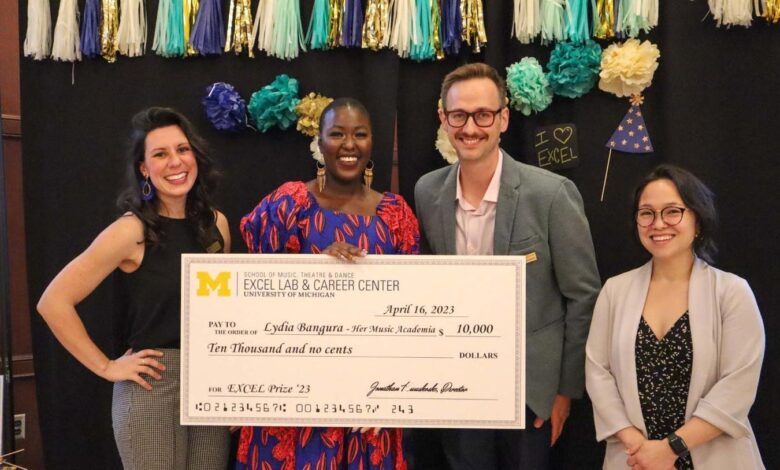Entrepreneurship Has Been The Missing Link In An Arts Education

By: Christos Makridis
Despite the broad support and appeal of the arts and culture sectors, working artists still face a major paradox: their lives are defined by financial fragility and obtaining additional education often hurts, rather than helps, their labor market prospects, according to my research in the Journal of Cultural Economics. However, there’s a silver lining: artists who also undertake some business courses during their bachelor’s degree fare better than their counterparts, according to my recently-published research in Artivate with Jonathan Kuuskoski, chair of the Department of Entrepreneurship and Leadership and director of the EXCEL Lab at the University of Michigan.
Historically, the arts have been celebrated for their intrinsic value—inspiring creativity, fostering cultural expression, and contributing to societal well-being. However, the economic realities facing artists and the arts sector have prompted a reevaluation of how arts education is structured, particularly concerning the integration of entrepreneurship.
The emergence of arts entrepreneurship programs in the last two decades is a response to this gap, driven by the increasing economic precarity among artists and a growing institutional awareness of alumni outcomes. “Tailoring programs is key because there is no one-size-fits-all approach to teaching entrepreneurial skills to artists. For many programs, though, it is impractical to offer multiple types of resources all at once. So, we should walk the walk, and take an entrepreneurial approach. Program leadership should start with assessing their ecosystem—the culture, the community members, the conditions and external forces in play—to determine what the first move should be,” said Kuuskoski.
Gabrielle Piazza (left), assistant director of EXCEL; Lydia Bangura, a music theory PhD student who … [+]
The recently-published paper in Artivate finds that fine arts graduates earn 8.7% less than their counterparts even after controlling for a wide array of potentially confounding factors (e.g., age and race), but holding a business degree reduces the earnings penalty by a half. Even though a mere fraction of arts graduates receive formal entrepreneurship training, those who do exhibit markedly improved labor market outcomes. This finding underscores the critical role of entrepreneurship education in empowering artists to navigate the complexities of the market, leverage opportunities, and sustain their careers.
Part of the reason programs are slow to adopt training in entrepreneurship is because the set of curriculum is already full and removing coursework is a lengthy and controversial process. “The biggest barrier may not be cultural… There isn’t much space in most degree programs to add more coursework. Competing with, or aiming to minimize, student access to offerings in the liberal arts, sciences, or other areas of interest is not a good strategy. And we shouldn’t try to chip away at core curriculum requirements,” Kuuskoski continued. The question for pedagogues is how to modernize curricula so it is relevant and impactful for the labor market that new graduates find themselves in.
Figure 2 from “The Labor Market Returns of Being An Artist: Evidence from the United States, … [+]
The implications of this study extend beyond individual artists to the broader arts sector and educational institutions. For the arts sector to thrive, a paradigm shift is necessary—one that recognizes and integrates the principles of entrepreneurship within arts education. By doing so, we can equip artists with the tools and mindset required to innovate, create sustainable ventures, and contribute more significantly to the economy and society.
Educational institutions, particularly those offering arts programs, have the potential to shape so many students’ lives for the better. The integration of business training within arts curricula is not merely an added value but a fundamental component that can shape the future of arts education and the sector at large. “Having embarked upon the textbook approach to becoming an opera singer, life circumstances interfered after I was diagnosed with cancer. After recovering, I no longer had a program to attend, so I just moved to Berlin and immersed myself in the cultural scene… it nearly a year in that I was discovered in someone’s living room and my career took off,” said Soula Parassidis, co-founder and CEO of Living Opera and a leading dramatic soprano. “If anything, my experience confirms that the traditional route is not always required and sometimes the best way to learn is just to do,” she continued.
Soula Parassidis
The arts and cultural sectors have been facing headwinds for years, but these were exacerbated during the pandemic. My new research with Jonathan Kuuskoski underscores the need to reimagine arts education in the 21st century and embed principles of entrepreneurship and leadership into the curriculum.
By embracing arts entrepreneurship, we can narrow the gap between artistic passion and economic sustainability, ensuring that artists not only survive but thrive in today’s dynamic landscape. Let us commit to empowering the next generation of artists with the knowledge, skills, and entrepreneurial spirit to chart their own paths to success.



